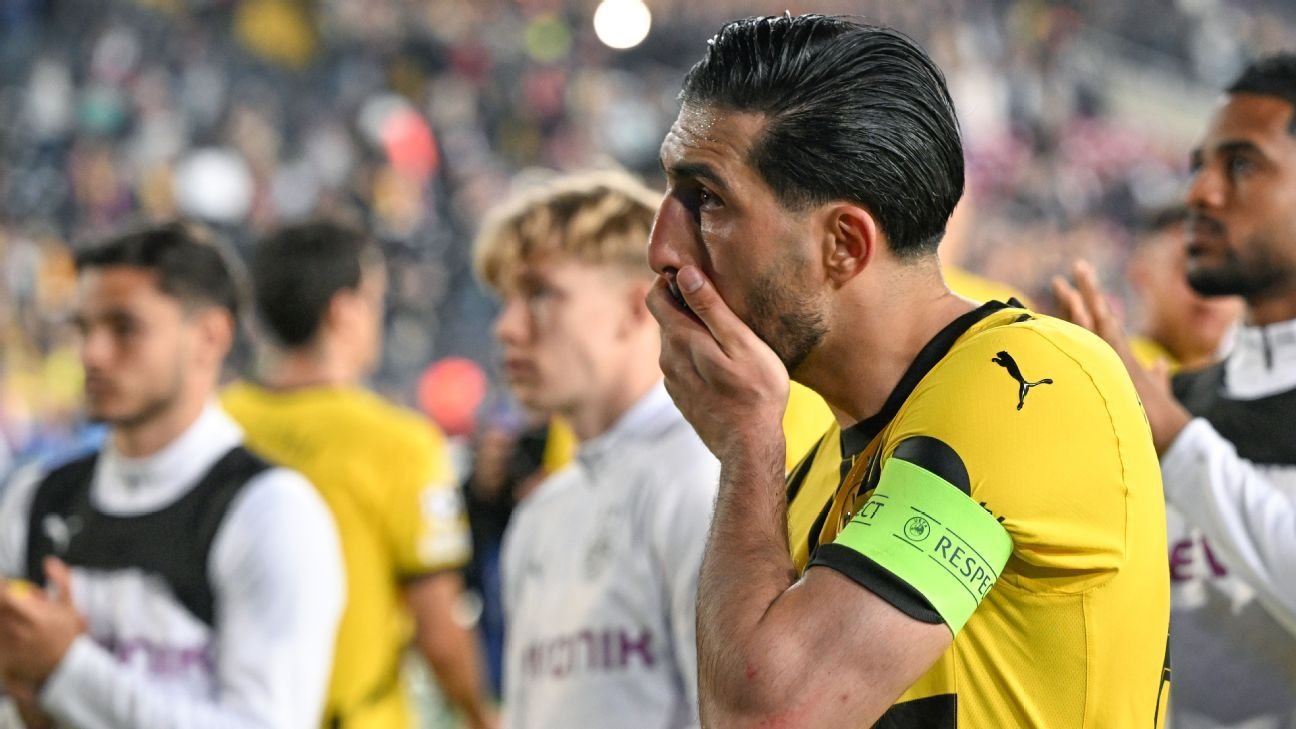
German Chancellor-in-waiting Friedrich Merz faces the prospect of being forced into another pivot before he even takes office.
![l04e6(6]b8457g)kxbs5x54b_media_dl_1.png](https://i0.wp.com/smartcdn.gprod.postmedia.digital/financialpost/wp-content/uploads/2025/04/germany-is-most-exposed-to-trade-among-large-economies.jpg?resize=1000%2C750&ssl=1)
Article content
(Bloomberg) — German Chancellor-in-waiting Friedrich Merz faces the prospect of being forced into another pivot before he even takes office.
Article content
Article content
After Donald Trump’s sweeping tariffs — including a 20% levy on imports from Germany and other European Union countries — Merz’s past confidence in the US is under threat as trade disruptions make a quick economic recovery even more remote.
Advertisement 2
Article content
With coalition talks between Merz’s conservative CDU-led bloc and the center-left Social Democrats bogged down in disputes over tax policy and migration, trade has been forced onto the agenda. His alternatives are to reconsider his long-standing opposition to closer ties with China or develop other markets for the export-dependent German economy.
The path ahead for Europe’s largest economy is fraught, adding to the pressure on Merz. He’s already alienated some conservative voters by abandoning fiscal restraint with a spending package that unleashes hundreds of billions of euros in debt financing for defense and infrastructure.
While the 69-year-old CDU leader has been conspicuously silent since the US tariff announcement, his prospective government partners made it clear that continuing to rely on the good graces of the White House isn’t an option.
“Trump has unleashed a US trade war against the rest of the world,” Nils Schmid, foreign policy spokesman for the Social Democrats, told Bloomberg. He called for retaliatory tariffs against the US, diversifying trade relations and coordination with Canada and Mexico as well as Asian partners.
Article content
Advertisement 3
Article content
The plan was supposed to be different. Merz had repeatedly made clear that under his leadership Germany would take a tougher stance on China and transatlantic ties would strengthen. But Trump’s tariff blitz undermines Merz’s planned repositioning and raises the question of where Germany will sell its exports.
Robert Habeck, the outgoing economy minister from the Greens, implied Merz wasn’t up to the task, calling on the next government to abandon “assumptions of the 1990s.”
“We can no longer rely on others to be kind to us,” Habeck said Thursday in Berlin. “Radical acceptance of reality is the new paradigm by which the new government must act.”
While caretaker Chancellor Olaf Scholz quickly called Trump’s tariffs “fundamentally wrong,” Merz has yet to issue any public comment.
As Germany was waking up to unprecedented uncertainty over its trade relations with the US, he published a post about deceased former Chancellor Helmut Kohl, who would have turned 95 on Thursday.
Spokespeople for the CDU declined to comment on Merz’s China policy, saying he’s focusing on the coalition talks.
Advertisement 4
Article content
In the past, Merz’s affinity for the US and mistrust of China has been obvious. In a speech ahead of the Feb. 23 election, he warned business leaders against overexposure to the Asian powerhouse.
“The decision to invest in China is a decision with great risk,” he told his audience, including Chinese Ambassador Deng Hongbo. “If you take this risk, do it in such a way that it doesn’t endanger the entire group if you have to write off this investment from one year to the next.”
Deng appeared irritated and quickly left, according to people who attended the event, who asked not to be identified. The Chinese embassy didn’t respond to a request for comment. At the time, the foreign ministry in Beijing called on Germany to view the countries’ ties “objectively and rationally.”
A few weeks later, Merz reasserted his preference for dealing with the US, evidently undeterred by remarks from Trump and his administration that called the transatlantic alliance into question.
“I’ve been strengthened in recent weeks and months in my conviction that the American market, including the South American market, is definitely a secure base for us,” the CDU leader said at a meeting hosted by Germany’s car lobby at the end of January.
Advertisement 5
Article content
Under Scholz, Germany tried to maintain positive relations with China, calling for de-risking rather than de-coupling.
While China did drop below the US to become Germany’s second-largest trading partner last year, that was more due to falling demand from the world’s second-largest economy rather than government policy in Berlin.
The tougher stance is reflected in a paper, which is the basis for the ongoing coalition talks on Germany’s future foreign policy and calls for reducing “one-sided dependencies.”
“China has become a systemic rival,” the CDU-led conservatives and the SPD say in the policy paper seen by Bloomberg. “Our desire for partnership elements and fair competition is increasingly less reciprocated, yet we still seek cooperation where it is in our interest.”
A separate document from the CDU parliamentary group highlights the potential for disputes. It takes a harder line and proposes outbound investment screening, relocating production and supply lines to Europe, and diversifying trade relations.
Behind the scenes, Merz sees China as an existential threat to Germany’s security and is determined to rein in the relationship. That indicates potentially drastic change to commercial ties, which amounted to nearly €246 billion ($271 billion) in exports and imports last year.
Advertisement 6
Article content
There’s also €107 billion of cumulative investments in Chinese operations by companies including Volkswagen AG, BASF SE and hundreds of smaller manufacturers, according to the Bundesbank.
Merz’s stance on China is rooted in the time he spent away from politics. During more than a decade working as a corporate lawyer, he developed a distrust for Chinese partners, he said during a recent closed-door dinner, according to a participant who asked not to be identified citing a confidential discussion.
The prospective chancellor had initially hoped that his critical stance on China would help build a rapport with the Trump administration, according to a person familiar with his thinking. The German conservative has repeatedly stated his openness to a political deal with the US president.
Now, Merz is faced with leading Germany in a geopolitical environment that is shifting away from his convictions and leaving the country squeezed.
Alexander Dobrindt from the CDU’s Bavarian sister party, the CSU, was one of the few senior conservatives to comment publicly on Trump’s tariff barrage.
“This will put pressure on trade relations worldwide,” Dobrindt told reporters in Berlin, adding that “stable growth” is key for Germany.
“Then we can also withstand the threats posed by the USA,” he added. “But this task has now become even greater.”
—With assistance from Kamil Kowalcze and Christoph Rauwald.
Article content


 Breaking News & In-Depth Analysis – Stay updated with real-time updates and well-researched articles.
Breaking News & In-Depth Analysis – Stay updated with real-time updates and well-researched articles. Have a story or feedback? Contact us at info@dailynewsnblog.com
Have a story or feedback? Contact us at info@dailynewsnblog.com



